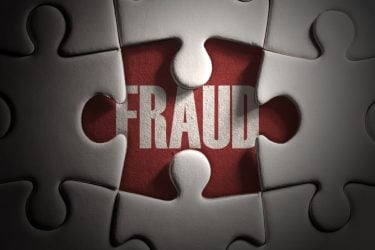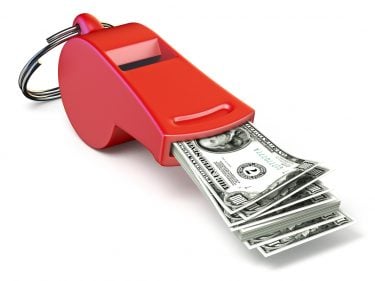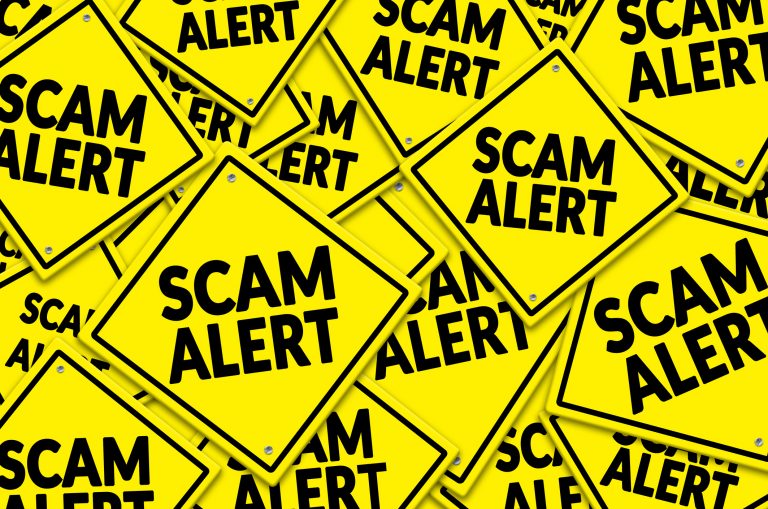At Zuckerman Law, we help whistleblowers before the SEC to stop these frauds and manage whistleblower rewards; if you suspect an activity that may be linked to these irregularities and do not know how to proceed, we leave you with this guide so you know How to Identify and Report a Ponzi Scheme.
Ponzi Schemes at Highest Level in a Decade
A Ponzi scheme is a type of investment fraud that leads investors to believe the “returns” on their investment are coming from generated profit, when in fact these payments come from funds contributed by newer investors. Ponzi schemes, like Bernie Madoff’s $65 billion scam, tend to collapse during times of economic turmoil (e.g., the 2008 financial crisis and the recent coronavirus outbreak) because the fraudsters in the schemes have a difficult time raising funds from new investors. Without legitimate business operations to sustain payments to investors, Ponzi schemes quickly reach their inevitable demise when they are no longer able to raise funds to make payments to investors.
According to a recent article, Ponzi schemes are at their highest level in a decade. In 2019 alone, state and federal authorities halted 60 alleged Ponzi schemes that raised more than $3 billion in investor funds. Partnering with our courageous clients, we have helped the SEC stop more than $800 million in fraudulent investment schemes.
How to Identify a Ponzi Scheme
According to the SEC, Ponzi schemes frequently share common characteristics. When seeking to identify a potential Ponzi scheme, whistleblowers should consider the following red flags:
- High investment returns with little or no risk.
- Consistent returns regardless of market conditions.
- Investments that are not registered with the SEC or an appropriate state regulator.
- Secretive and/or complex strategies about which investors cannot get complete information.
- Lack of paperwork; inaccessibility to information about an investment in writing.
- Difficulty receiving payment; promises of “rolling over” investments or higher returns in the future.
For more information about Ponzi schemes, see the SEC’s General Resources on Ponzi schemes.
How to Report a Ponzi Scheme to the SEC
To report a Ponzi scheme and qualify for an award under the SEC Whistleblower Program, the SEC requires that whistleblowers or their attorneys report information online through the SEC’s Tip, Complaint or Referral Portal or mail/fax a Form TCR to the SEC Office of the Whistleblower. Prior to submitting a tip, whistleblowers should consult with an experienced whistleblower attorney and review the SEC whistleblower rules to, among other things, understand eligibility rules and consider the factors that can significantly increase or decrease the size of a future whistleblower award.
SEC Whistleblower Program Roots Out Ponzi Schemes

The SEC Whistleblower Program also protects the confidentiality of whistleblowers and does not disclose information that might directly or indirectly reveal a whistleblower’s identity. Whistleblowers can even submit a tip anonymously to the SEC if represented by an attorney in connection with their tip.
SEC Whistleblower Awards

For more information about the SEC Whistleblower Program and how to identify and report a Ponzi scheme, download the eBook: Tips from SEC Whistleblower Attorneys to Maximize an SEC Whistleblower Award.
The top SEC whistleblower attorneys can provide critical guidance to whistleblowers throughout this process to protect their identities and increase the likelihood that they not only obtain, but maximize, their awards.






SEC Enforcement Actions Against Ponzi Schemes
Below are some examples of Ponzi schemes that were recently halted by the SEC. As detailed below, many of the Ponzi schemes share common characteristics. Whistleblowers should be on the lookout for these “red flags” when attempting to identify Ponzi schemes.
$80 Million Ponzi Scheme
On May 23, 2019, the SEC charged a commercial real estate developer and two of his entities with fraud for operating a Ponzi scheme. According to the SEC’s complaint, Robert C. Morgan raised more than $80 million from investors through sales of securities directly to retail investors. Morgan represented that their funds would be used to improve multifamily properties and that investors would be paid a target return of 11%. Instead of investing in the multifamily properties, the SEC alleges that Morgan used new investor funds to pay earlier investors. In addition, the SEC alleges that Morgan used at least $11 million in investor funds to pay an inflated, fraudulently-obtained personal loan on an apartment complex.
$6 Million Ponzi Scheme
On November 19, 2019, the SEC filed charges against two individuals who orchestrated a $6 million Ponzi scheme that defrauded at least 55 investors. According to the SEC’s complaint, Neil Burkholz and Frank Bianco misappropriated investor funds by diverting them to pay other investors and by transferring funds to themselves. The funds that they did invest resulted in near-total losses, so they delivered false reports to investors indicating their assets were profitably invested. The individuals mischaracterized the funds’ performance by claiming massive positive returns when the funds were either misappropriated or lost. To perpetuate the scheme, the schemers employed a variety of methods to discourage withdrawals.
$5 Million Ponzi Scheme
On December 19, 2019, the SEC announced charges against Edward Espinal and his companies, Cash Flow Partners and Cash Flow Capital, for orchestrating a $5 million Ponzi scheme that defrauded at least 90 investors. According to the SEC’s complaint, Espinal offered individuals an opportunity to multiply their money “five to ten times faster than at a bank,” guaranteeing investment returns that varied in amounts between 14% and 48% annually.
Once investors agreed to invest, Espinal promised a higher guaranteed return if they invested more money, and earlier investors were offered higher rates of return. Instead of pooling investors’ money to acquire real estate, investor funds were used to pay earlier investors their monthly “returns” and to sustain the personal living expenses of Espinal and his family. Additionally, although advertised as so, neither company was licensed by the SEC.
$75 Million Ponzi Scheme
On January 14, 2020, the SEC announced an enforcement action against a Ponzi scheme that raised at least $75 million from over 500 investors throughout the United States and abroad. According to the SEC, Kenneth Courtright persuaded investors to invest in his company, Todays Growth Consultant Inc. (“TGC”) by purporting to buy or build websites from investors and develop and maintain the sites. Investors would then execute Consulting Performance Agreements, which were sold through unregistered offerings that Courtright and his company advertised and guaranteed high returns to investors.
In these agreements, TGC promised investors the larger of either 50% of their website revenues or a minimum annual guaranteed return (ranging from 13% – 20% of the initial investment amount) to be paid monthly. From at least January 2017 to May 2019, TGC funded the gap between website revenue and its “guaranteed” investor payments through the offer and sale of agreements to new or repeat investors, in the classic Ponzi-scheme manner. To further fund the scheme, Courtright borrowed several large loans from distressed lending companies and co-mingled those funds with those of his investors to satisfy the company’s guarantee obligations and repay the loans. In the approximately two years the scheme ran, TGC generated $9 million in revenue but paid investors $30 million.
$910 Million Ponzi Scheme
On January 24, 2020, the SEC filed charges against a California-based couple for orchestrating a $910 million Ponzi scheme. According to the SEC’s complaint, Jeffrey and Paulette Carpoff offered and sold investments through their two privately-held alternative energy companies in the business of making, leasing, and operating mobile solar generators. The securities were sold as two types of investment contracts, and investors expected to profit from their investment due to tax credits, depreciation on the generators, and lease payments. In their marketing materials, the two companies promised a return rate of 40% to 50%.
Investors expected to invest in the producing, purchasing, and leasing of solar generators when, in fact, the Carpoffs’ energy companies never manufactured the majority of the generators they sold. Moreover, most of the lease revenue paid to investors consisted of funds from other investors, rather than lease income from legitimate end-users of the generators. When investors began to look into locating their generators, the search revealed that the company only purchased a fraction of the generators it claimed to have purchased (approximately 6,571 of 17,600 generators). In total, the inventory located only about 37% of the generators that were sold through the Carpoffs’ companies.
The Carpoffs and their employees engaged in fraudulent practices to make their Ponzi scheme seem more legitimate, including issuing false certifications for generators being placed in service, making false statements to investors with regard to the nature of generator production, and fabricating GPS data to show investors where their generators were being used. The Carpoffs used investors’ money to not only pay other investors but to support a lavish lifestyle— they transferred tens of millions of dollars to their personal bank accounts, as well as the bank accounts of other companies they owned.
SEC Whistleblower Attorneys
If you would like more information on reporting a violation of the federal securities laws, contact an SEC Whistleblower Attorney at Zuckerman Law for a free, confidential consultation. Zuckerman Law is one of the nation’s leading law firms representing whistleblowers in whistleblower rewards and retaliation cases.






Ponzi Scheme SEC Whistleblower Lawyers
How to Qualify for an SEC Whistleblower Bounty
- See our column in Forbes: One Billion Reasons Why The SEC Whistleblower-Reward Program Is Effective.
- See our column in Going Concern: Sarbanes-Oxley 15 Years Later: Accountants Need to Speak Up Now More Than Ever.
- See our post in Accounting Today: Whistleblower Protections and Incentives for Auditors and Accountants.
- See our post in The Compliance and Ethics Blog: Shkreli Trial Reveals the Challenges Faced by Compliance Whistleblowers.
SEC Whistleblower Process
Ponzi Scheme SEC Whistleblower Awards
Are Whistleblowers Protected from Retaliation?
Click here to learn more about anti-retaliation protections for SEC whistleblowers under the Dodd-Frank Act and Sarbanes-Oxley Act.



